Best Inventory Management Software
The best inventory management software are Fishbowl Inventory, myBillBook, Zoho Inventory, Oracle NetSuite, and TallyPrime. Inventory and stock management software solutions are easy-to-use tools offering stock, warehouse, and order management. The objective of inventory software is to have the right products in the right place.



Connect With Your Personal Advisor
List of 20 Best Inventory Management Software
#1 Cloud ERP for Fast-Growing Businesses
NetSuite, #1 cloud ERP, is an all-in-one cloud business management solution that helps more than 29,000 organizations operate more effectively by automating core processes and providing real-time visibility into operational and financial performance. Learn more about Oracle NetSuite ERP
Starting Price: Available on Request
Category Champions | 2023
Inventory management software for growing business
Grow your business and streamline your inventory management with Zoho Inventory. Manage multi-channel orders, warehouses, packaging, and shipping, track inventory and integrate with many other applications from a single inventory management software. Read Zoho Inventory Reviews
Starting Price: Starting Price: $208.32 Per Organization/Year
Recent Review
"Great Value. " - Jason Fernandez
Emergents | 2023
ShippingEasy is a fully featured Inventory Management Software designed to serve Agencies, Enterprises. ShippingEasy provides end-to-end solutions designed for Web App. This online Inventory Management system offers Email Marketing, Supplier Management, Event Triggered Email, Templates, Mobile Optimized Emails at one place. Read ShippingEasy Reviews
Starting Price: Available on Request
Oracle Netsuite is the first and last business system you will ever need. For more than 20 years, Oracle NetSuite has helped organizations grow, scale and adapt to change. NetSuite provides an integrated system that includes financials / ERP, inventory management, HR, professional services automation and omnichannel commerce, used by more than 26,000 customers in 215 countries and dependent territories. Read Oracle Netsuite EMEA Reviews
Starting Price: Available on Request
Recent Review
"Oracle NetSuite aids businesses to become more efficient and intelligent" - Mohammed Mustafha
| Pros | Cons |
|---|---|
|
user friendly powerful |
none |
|
Speed |
Backup |
NetSuite, #1 cloud ERP, is an all-in-one cloud business management solution that helps more than 29,000 organizations operate more effectively by automating core processes and providing real-time visibility into operational and financial performance. Read Oracle NetSuite Reviews
Starting Price: Available on Request
Recent Review
"Great ERP solution for businesses of all sizes" - Parshwa Bhavsar
| Pros | Cons |
|---|---|
|
user friendly powerful |
none |
Category Champions | 2023
TallyPrime is one of the leading business management solutions in the world, known for its accounting, stock control, reporting and payroll features. With TallyPrime, you don’t need to pay extra for additional features, which makes it affordable for small and medium businesses. It is used by 2 million businesses worldwide. Read TallyPrime Reviews
Starting Price: Available on Request
Recent Review
"Very best softare in my view but some measure have to be taken in order make it perfect ." - Arpit mishra
| Pros | Cons |
|---|---|
|
It's simple to operate on Tally and it's effective on daily basis use. |
my experience of over two years, I didn't dislike anything. |
|
It helps you manage accounting & payroll. |
It is Not User-Friendly. |
Category Champions | 2023
Vyapar is the simplest GST ready Accounting, Invoicing and Inventory management software. It's made completely for a businessman, you don't have to waste time learning it. Just start managing your business digitally like before even with no Accounting knowledge. Read Vyapar Reviews
Starting Price: Starting Price: $39.99 Device/Year
Recent Review
"Review for Vyapar" - Junaid Ahmad
| Pros | Cons |
|---|---|
|
Some additional pros of using accounting software for small businesses include:It can automate repetitive tasks such as invoicing, payments, and reconciling bank statements.It can provide real-time visibility into financial performance, allowing you to make more informed business decisions.It can help you stay compliant with tax laws and regulations by generating the necessary reports and forms.It can also integrate with other software such as point-of-sale systems, making it easy to track inventory and manage customer information.It can save time and increase efficiency by streamlining financial processes and reducing the need for manual data entry. |
It has a learning curve and the initial learning process may take some time, but this may not be an issue for experienced accountants |
|
Experts say |
Skills Development |
Contenders | 2023
Billing, Accounts and Inventory Management
HDPOS is the best accounting software. It has ease of use and nice interface. It is a Windows based Billing, Inventory Management and Accounting Software and it easly Install on single computer or multiple Terminals. Used for finance management system. Read HDPOS Smart Accounts and Billing Reviews
Starting Price: Starting Price: $18.06 Per Month
Recent Review
"Good software for tuff and intelligent people" - MOHANKUMARSETTY
| Pros | Cons |
|---|---|
|
Billing with images coupons short codes somany reports |
Little bit if I have any doubt not clarifiying |
|
Easy to use and good interface |
They have to work on android app. |
Software by Bellwether Software
Bellwether Purchasing and Inventory is a fully featured eProcurement Software designed to serve Enterprises, Agencies. Bellwether Purchasing and Inventory provides end-to-end solutions designed for Windows. This online eProcurement system offers Vendor Management, Spend Management, Sourcing Management, Invoice Processing, Supply Management at one place. Learn more about Bellwether Purchasing and Inventory
Starting Price: Available on Request
Improve Forecast Accuracy, Optimize Inventory
Smart Inventory Planning and Optimization is a cloud supply chain platform for demand and inventory planning, forecasting and supply chain analytics. Learn more about Smart Inventory Planning & Optimization
Starting Price: Available on Request
inFlow Inventory is the easiest way to run your wholesale, distribution, manufacturing, or ecommerce business. Ditch your messy spreadsheets and track your inventory from one app. Manage your orders from start to finish with full pick/pack/ship support, bill of materials and assemblies, and integrations with over 35 different ecommerce platforms. Read inFlow Inventory Reviews
Starting Price: Starting Price: $99 Full License
Recent Review
"Best app for use " - F Y
| Pros | Cons |
|---|---|
|
sales, investments or financing. It's the opposite of cash outflow, which is the money leaving the business. A company's ability to create value for shareholders is determined by its ability to generate positive cash flows. |
sales, investments or financing. It's the opposite of cash outflow, which is the money leaving the business. A company's ability to create value for shareholders is determined by its ability to generate positive cash flows. |
Category Champions | 2023
#1 Cloud ERP for Fast-Growing Businesses
NetSuite, #1 cloud ERP, is an all-in-one cloud business management solution that helps more than 29,000 organizations operate more effectively by automating core processes and providing real-time visibility into operational and financial performance. Read Oracle NetSuite ERP Reviews
Starting Price: Available on Request
Recent Review
"Excellent " - HASMUKH PATEL
| Pros | Cons |
|---|---|
|
Easy of Operations, Functionality and last price |
Oracle Purchasing and Inventory Modules, also Hr Module |
|
Easy to use and quite faster. |
I haven't found any cons in this. |
Sortly Pro is a fully featured Inventory Management Software designed to serve Enterprises, Startups. Sortly Pro provides end-to-end solutions designed for Web App. This online Inventory Management system offers Serial Number Tracking, Inventory Optimization, Purchasing, Serial Number Tracking, Custom Labels at one place. Learn more about Sortly
Starting Price: Available on Request
eQuipMe is a fully featured Field Service Management Software designed to serve SMEs, Enterprises. eQuipMe provides end-to-end solutions designed for Windows. This online Field Service Management system offers Inventory Management, Scheduling, Time Clock, Billing & Invoicing, Routing at one place. Learn more about eQuipMe
Starting Price: Available on Request
CoreIMS is a fully featured Inventory Management Software designed to serve Enterprises, Startups. CoreIMS provides end-to-end solutions designed for Windows. This online Inventory Management system offers Supplier Management, Receiving/Putaway Management, Quality Management, Forecasting, Barcoding/RFID at one place. Learn more about CoreIMS
Starting Price: Starting Price: $65 User/Month
ZarMoney is a fully featured Inventory Management Software designed to serve Enterprises, Startups. ZarMoney provides end-to-end solutions designed for Web App. This online Inventory Management system offers Purchase Orders, Mobile Payments, Fund Accounting, Project Accounting, Billing & Invoicing at one place. Read ZarMoney Reviews
Starting Price: Starting Price: $15 Per Month
Recent Review
"Best alternative I've found so far at this price" - Youssef
| Pros | Cons |
|---|---|
|
I found many features such as:- It has many advantages for its price category.- Good customer service.- Provides a plan for small businesses.- Suitable for those with little experience in accounting because it is easy to use and does most of the tasks. -Tools can be customized - uses artificial intelligence |
- It pays great attention to inventory management, but ignores other features that we need in accounting. -Although it is easy to use, it can be organized a little better. - Mobile app needs improvement. |
Category Champions | 2023
The Complete Business Management Software for SMEs
An integrated bussing accounting and management solution, BUSY is a one-stop solution for your financial and payroll needs. It offers multi-location inventory, multi-currency support, order processing capabilities, and helps you make informed decisions. Moreover, it is best suited for the FMCG, retail, manufacturing, trading, and distribution businesses. Read Busy Accounting Software Reviews
Starting Price: Starting Price: $100 Per Year
Recent Review
"User friendly " - Pawan Sharma
| Pros | Cons |
|---|---|
|
On line services required. |
Trade specific features needs improvement |
|
From the software itself we are in the position of priniting thre payment cheque . |
User Interface can be good |
A one-stop inventory and order management solution for pharma retailers. It is a complete browser-based application for pharma industries. Redbook is easy to use interface saves time and effort in handling over the counter and online prescription order. Read RedBook Reviews
Starting Price: Starting Price: $125 Full Year Licence/Single User/Excluding GST
Recent Review
"Software is nice and user friendly" - M venkata janardhan redfy
| Pros | Cons |
|---|---|
|
Good ambience, options user friendly |
Taxation simpler and stock transfer like options |
|
Nothing is good about the software other than presales |
Basics are not working printer stops bugs in software mismatch of amounts in sales and purchase reports |
Medbikri is a platform designed for local pharmacy stores that helps them in maintaining their Inventory with daily stock alerts. It also helps record customer sale with features like Refill Reminders to help chemist get repeat orders Read Medbikri Reviews
Starting Price: Available on Request
Recent Review
"Best application for manage inventory " - Rahul patidar
| Pros | Cons |
|---|---|
|
I like the feature most scan of bills by images option. Just take pictures of bills and upload it after few seconds all medicines updated in inventory with all details expiry quantity and etc. |
Scanning option must be improve it's take too much time to capture the bills. |
|
Scanning of bills is a impresive feature it's can add medicine Directly to inventry and every data of medicine expiry date and all details of medicine added by to |
scan by bills it's must be improve it's takes too much time to capture bills. |
ORION Enterprise is a dynamic enterprise resource planning solution that allows organizations to smoothly integrate disparate teams, functions, processes, and systems. 3i Infotech is a global Information Technology company committed to Empowering Business Transformation. Read ORION ERP Reviews
Starting Price: Available on Request
Recent Review
"Good Product with nice features." - Ramasamy I
| Pros | Cons |
|---|---|
|
Inventory and purchase covers all the business processes. |
We need mobile and Tab version of the product. Need ready made APIs for integration. |
|
Clear understanding of requirements and delivery of the software. Initial testing was time-consuming, but end result was a value add to the business. |
Lacks usability in the older version of ORION. But the new version is better. Had a demo arranged by 3i. |
Until 31st Mar 2023

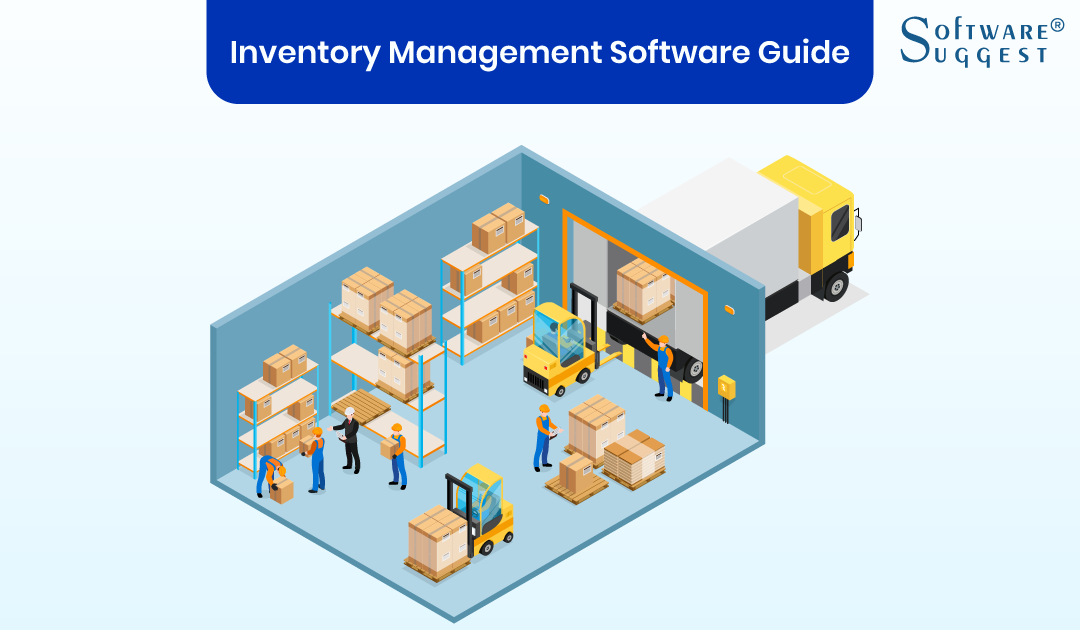
What is Inventory Management Software?
Before answering the question, we need to understand what 'Inventory' means and why companies need to manage them using the software. In layman's terms, inventory refers to the raw materials, work-in-progress goods, and final products that businesses put up for sale to generate revenues.
The key to running a successful business is to keep track of inventory and manage it well since there would be no money coming in without it. Stocks and other raw materials must also be ordered judiciously within a firm, too much stock can lead to wastage, and too little stock can halt production. Poor inventory management is one of the main reasons for the failure of small businesses.
Many businesses still maintain their inventory numbers through Excel, which is time-consuming. Though there is a plethora of inventory software available in the market today, 46% of Small and Medium-Sized Businesses (SMBs) still track their inventory manually, leading to frequent re-orders and excessive production, which have a substantial impact on a company's finances.
Inventory Management Software is a utility software that helps retail firms in keeping track of orders, sales, deliveries, and overall inventory levels. Modern inventory management software is also used in the manufacturing industry to create bills of materials, work orders, and other production-related documents. With a good inventory management system, businesses can reduce the efforts and time required for basic tracking of goods and focus on improving efficiencies and analyzing irregularities.
When do You Need to Use Stock and Inventory Management Software?
While businesses of all sizes that sell physical products require robust warehouse inventory management software, some industries can't ignore the powerful inventory management tools. Let’s look at businesses that can benefit best by using an inventory management system.
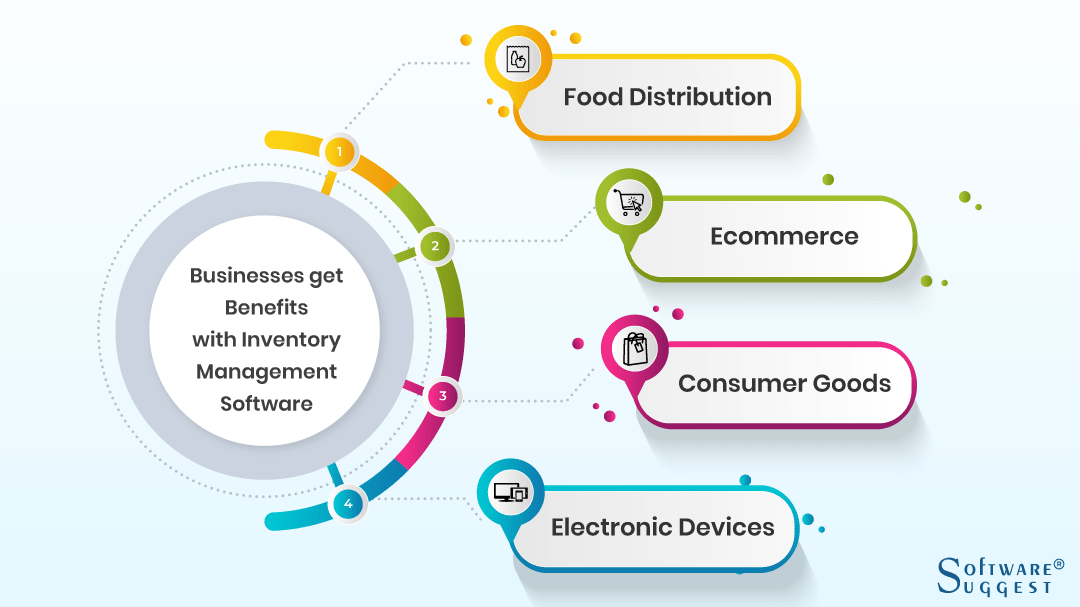
-
Food Distribution
Food distribution businesses cater to the needs of restaurants, schools, supermarkets, and more daily. Keeping an accurate track of the stock and inventory status is essential. Stock maintaining software ensures an accurate inventory management system and forecasts demand levels.
-
Ecommerce
E-commerce businesses need to deal with global distribution and round-the-clock order processing, making an effective inventory management system a critical requirement. Inventory management helps eCommerce providers to synchronize their inventory control across multiple channels and get accurate real-time updates and visibility.
-
Consumer Goods
Inventory management can pose a challenge for physical retailers in the consumer goods industry. However, well-implemented inventory management tools can help consumer goods providers optimize their inventory management process and improve their supply chains.
-
Electronic Devices
Electronic items can be difficult to deal with; individual units cost a few bucks to thousands of dollars. The right inventory management system ensures every phase of the inventory tool is efficiently handled.
What are the Benefits of Inventory Management Software?
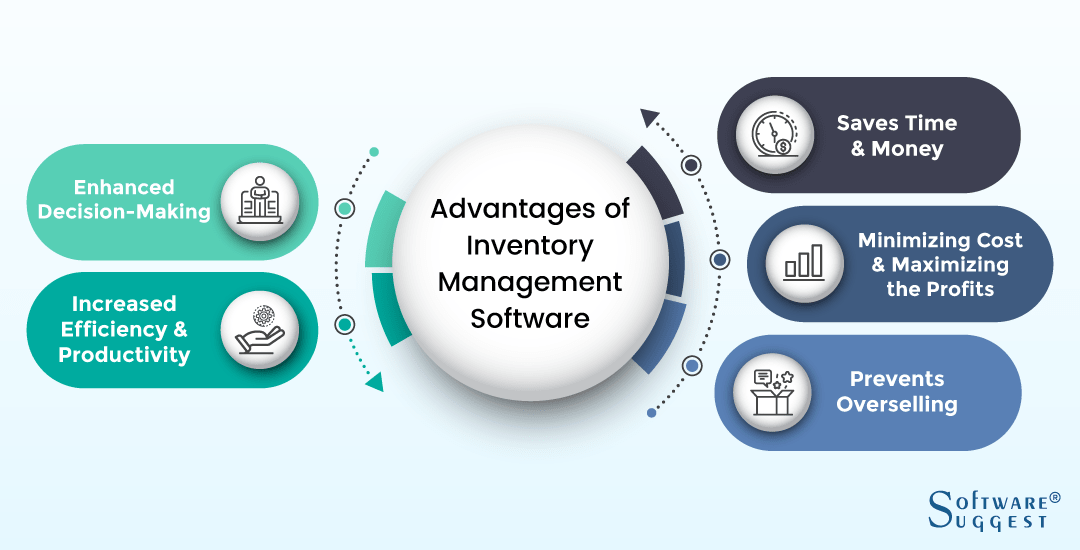
As discussed above, there are several advantages of using inventory management software that has made them an essential component of running a business. Here are the reasons why businesses find them useful:
1. Reduced Inaccuracies
Inventory and stock management software contain an array of data handling and management processes that make getting the latest updates much easier. When they are updated manually, there are chances of data duplicity and inaccuracies that can cause a lot of trouble for businesses. Using software reduces the error margin considerably and gives you more accurate data on to base your decisions.
2. Greater Productivity in Operations
Reports and analytics derived from your inventory management software can give you a clearer perception of which items are moving quickly in your business channels and which are not. This helps you in making more intelligent business decisions and provides you with better insights into managing your stocks, especially if you deal with perishable goods.
3. Customer Satisfaction
Having a decent stock management methodology helps meet client demands in time and anticipate future demand. Thus when your clients demand a product again, you have it ready for them. This not only helps in repeat business but also in overall customer satisfaction and improved brand image.
4. Reducing Manual Work
Manual work is both costly and prone to mistakes. There is usually a lot of data involved, along with complex calculations leading to increased man-hours. Also, one human error can seriously impact the overall calculation. However, with inventory software by your side, you save a great deal of time and manual effort needed for such tasks.
5. Cost-effective
Using inventory management software can also help you avoid overstocking and understocking scenarios by offering more accurate reports. Without them, your business can face substantial revenue losses and unnecessary expenditures.
Using an inventory management system, you can easily streamline your inventory and eliminate the risk of human mistakes. You can also calculate your safety stock and look at the product sale history to make better purchase decisions. These systems also notify you of low or finished stocks in your warehouses, making sure you never lose a customer.
6. Data Security
Using inventory management software also helps you give every user the required access associated with each level of your inventory chain. You can provide them only the access that they need to manage stocks or monitor them. This makes sure that there are no mistakes, and that your data is always secure.
7. Optimize Profits and Reduce Losses
A well-maintained inventory management system enables you to cut your expenses and maximize profits. The usage of analytics can significantly bring down costs and keep you updated with demand forecasts. This optimization makes sure that you make the most of every opportunity and reduce needless expenditures.
Thus, you can breathe easily, know better, save more, and manage your incoming and outgoing products using a good inventory system.
What are the Key Features of Inventory Management Solutions?
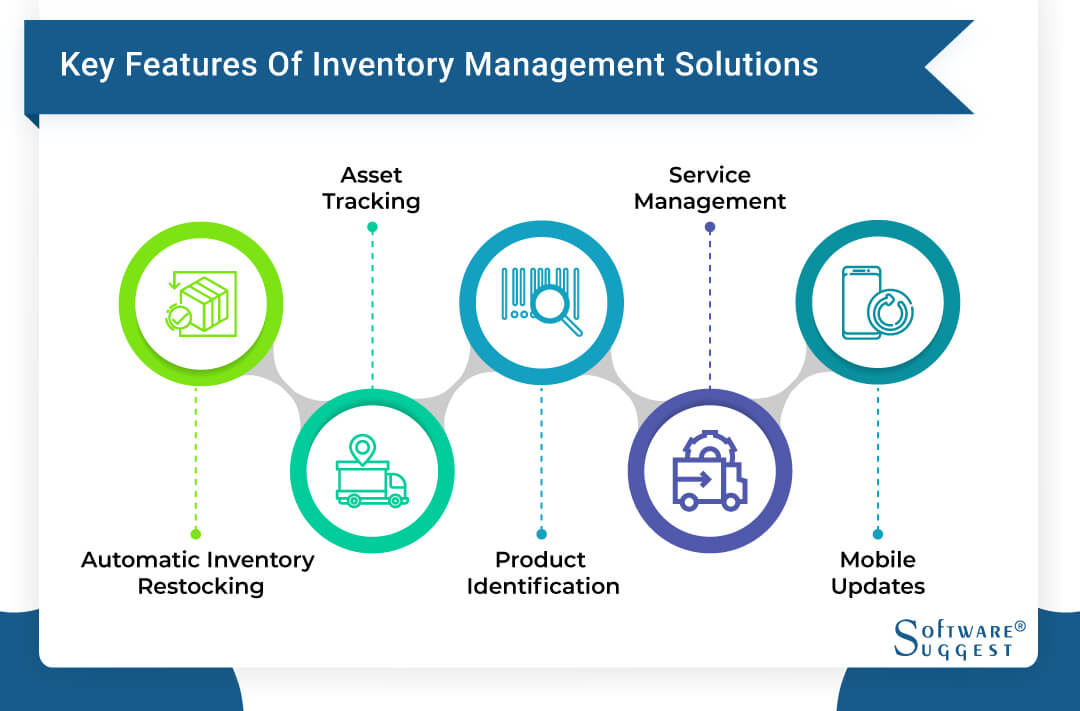
Though there are many inventory tracker software packages available in the market and appear very similar from the outside, there are several distinguishing features that you must check for before making a purchasing decision:
1. Automatic Inventory Restocking
The last thing any manufacturer wants is any of their main components running low during production. You can also miss out on customers if your product is out of stock, making customers choose your competitors. You can avoid both of the above situations by using inventory management software. Most of them can set up automated restock requests once the stocks go below a set limit. This helps you to always be a step ahead and ensure that the business keeps running smoothly.
2. Asset Tracking
Inventory management software can also help you keep track of all your assets in different warehouses. Using a barcode, RFID, or other tracking criteria ensures that you never lose track of your inventory and know where they are at any given time.
3. Product Identification
Another key feature provided by inventory management software is the easy and quick identification of products. Usually done using RFIDs or barcode scanning, these are an effective way to identify products coming in and out inexpensively.
4. Service Management
Beneficial for service-oriented organizations, this software can also help track the cost of all materials used to provide a particular service, helping you create more comprehensive bills of materials and estimate the total cost of a service.
5. Mobile Updates
Another great feature to have in your inventory management system is mobile update functionality. Since smartphones are with us most of the time, allowing timely mobile notifications proves to be a boon for any business, especially when it comes to managing inventory.
What Should be Considered When Purchasing Inventory Management Software?
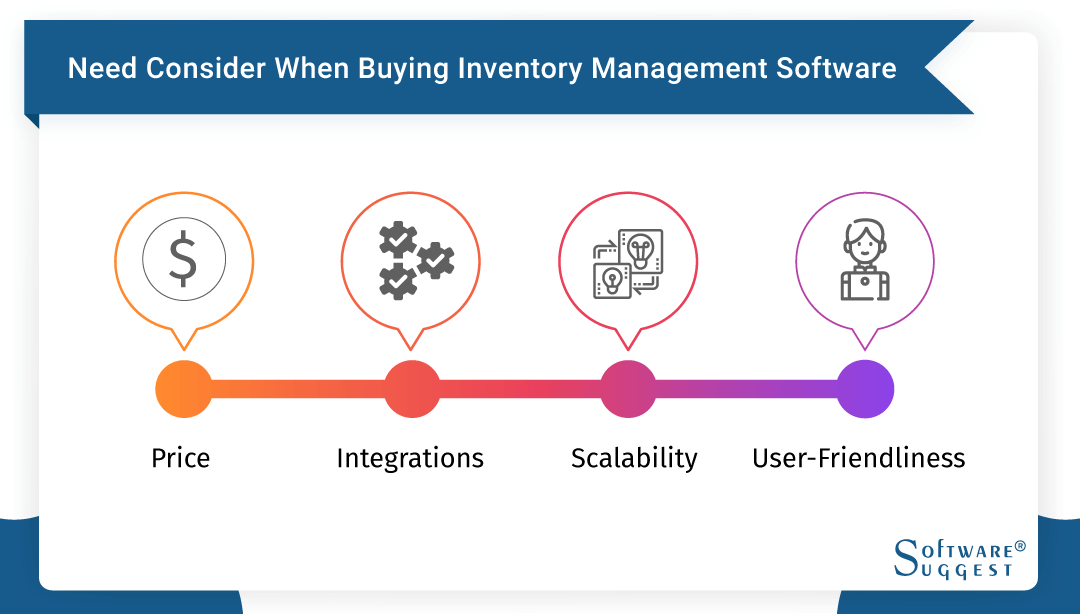
Picking the best inventory management software for your business can be an easy task if you know what you are looking for. However, before looking for the right tool, you must determine the following:
- Why do you need the software? What purpose will it serve?
- What are the features you would be needing?
- What type of inventory tracker software is ideal for your business type?
After determining the above, you will be able to decide on the following factors before making a purchase:
1. Price
Since inventory software has diversified itself to serve core business functions today, there are packages available in every price range. Using a cloud-based or online inventory management system can make it affordable, but you still need to pick the right plan that solves your business’s problems. Make sure that you do not spend huge sums of money on software features that you rarely use.
2. Integrations
Before you decide on a software package, you need to ensure that it integrates well with your existing system. The inventory management system must be compatible with the software and programs currently used to ensure maximum efficiency.
3. Scalability
Most businesses that purchase inventory management software want to expand themselves in the future. However, if the software you choose does not scale itself according to the organization’s growth, you will need to purchase a new one soon. Hence, it is best to find out the software’s scalability before signing a cheque for it.
4. User-friendliness
The ideal inventory system would make it easy for users to use it and get the work done. If your employees are struggling to operate it or if it requires intense training to master the software, it's time to choose an easier variant. Ensure that the system has a dashboard that is easy to use and helps you maneuver between functions easily.
Types of Stock and Inventory Management Systems
Managing and controlling an inventory system involves integrating all of the organization’s inventory-related tasks such as purchasing, receiving, shipping, warehouse storage, tracking, turnover, and reordering. Today, many inventory software systems empower firms to utilize their resources to the fullest and maximize productivity. However, all such systems can broadly be divided into the following 2methods:
1. Periodic Inventory Management System
Ideal for small organizations, data is entered periodically in this inventory management system. Data is usually entered either monthly, quarterly, or annually for small amounts of products, and the cost of products sold is tallied. Though useful for small-scale operations, there are several drawbacks to this method, mentioned below:
The cost of sold goods has to be estimated during periods where the count is not available. Thus after the complete count, companies have to make significant adjustments.
During periods when the count does not occur, companies are in the dark about the total cost of goods sold, making decision-making difficult.
The system doesn't consider obsolete inventory or scrap losses, which requires the firm to make significant adjustments after the count.
Even with these drawbacks, period inventory management is very popular among small and medium-sized firms as it does not require much investment upfront. Firms that do not have a large cycle count to keep their inventory management practices in check can find this system quite handy.
2. Perpetual Inventory Management System
As the name suggests, this type of inventory management system continuously updates its inventory records. This real-time updation helps the organization get the latest data to make better buying, selling, and procurement decisions, thereby optimizing resources. There is also a whole lot of time and effort saved as there is no manual checking of stocks needed.
However, the perpetual inventory management method requires firms to upgrade their technology and have a robust inventory system in place to make this method work well. Here are a few constraints that this system has:
-
These systems require frequent updates depending upon the platform deployment. This makes for costlier downtimes while such upgrades take place.
-
This system relies on the use of specialized inventory management software and equipment that adds to business costs.
-
The recorded inventory might not always reflect the actual inventory, leading to discrepancies without regular physical inventory counts.
-
Errors in improperly scanned goods or stolen goods can influence inventory records, often leading to a mismatch in counting.
Even with its faults, a perpetual inventory management system can provide great insights to large organizations and helps them in optimizing their storage process. They can reduce and take over several manual processes and offer greater data visibility. As tasks get completed, the system gathers the data and metrics and presents them in a dashboard before managers who can then make key decisions based on the insights received.
Inventory management systems can also be classified based on how they identify and demarcate inventory. They are:
1. Radio Frequency Identification Systems (RFID)
As the name suggests, this inventory control system has fixed readers that scan items as they move in or go out of warehouses, and data is added automatically into the system. A recent study suggested that using RFID tagging increases the accuracy of the inventory system from 63% to 95%. Thus several organizations make use of this system to ensure greater accuracy.
2. Barcode Systems
This system is the most widely used inventory management system, mainly due to its simplicity and cost-effectiveness. When employees use barcoding systems to scan stocks, inventory levels get updated in the system simultaneously. Since mobile scanners are primarily used in this process, the process is speedy and allows for prompt reporting and documentation. The probability of errors due to manual entries and stock movement between warehouses reduces significantly.
How Much Does Inventory Software Cost?
Today, most inventory software is hosted online, where you pay a subscription fee each month or annually. Inventory software providers may offer discounts for yearly subscriptions. Standalone inventory tools charge based on the number of orders placed, whereas POS systems with integrated inventory features provide tiered pricing schemes offering more advanced functionality as you increase your level of service.
Inventory management systems range from free to $300 or more per month. Higher-priced plans support companies with high sales volumes and may provide more features, like advanced analytics, integration, or automation tools.
Best Inventory Management Software with Pros and Cons
- Best Free Option: Zoho Inventory
- Best for B2B Companies: inFlow
- Best for Retail Stores: Lightspeed Retail
- Best Restaurants Inventory Management Software: Upserve
- Best for Manufacturing: Megaventory
- Best Overall: Cin7
Zoho Inventory
Grow your business and streamline your inventory management with Zoho Inventory. Manage multi-channel orders, warehouses, packaging, and shipping, track inventory and integrate with many other applications from a single inventory management software
Pro
- Free trial Available
- Multiple shipping options
- Desktop and mobile apps
Cons
- Limit Usage on Limited Plan
- No serial or batch tracking in the free plan
- Limited integration for accounts
Key features of Zoho Inventory are:
- Create invoices, bills, and shipping labels from a single application
- Centralized inventory system for multiple warehouses.
- Make informed business decisions with our extensive reports.
- Download the Zoho Inventory iOS application and manage your business on the go
- Integrate with shipping carriers, payment gateways, accounting, and CRM software in simple steps
InFlow
InFlow Inventory is open-source inventory management software - the easiest way to run your wholesale, distribution, manufacturing, or eCommerce business. Ditch your messy spreadsheets and track your inventory from one app.
Pro
- Free trial available without Credit Card
- Ample setup support
- A large number of reports
Cons
- Limited calling support
- Only integration in Top Plan
- Some features only available on Windows
Key Features of InFlow are:
- Track stock and costs across multiple locations
- Reorder and receive stock with purchase orders
- Connect to over 35 e-commerce platforms, incl. Shopify and Amazon
- Create and manage quotes and invoices
- Pick, pack, and ship your orders from any device
- Generate and scan barcodes to speed up work
Lightspeed Retail
Lightspeed is one of the best inventory management software for retail businesses that does a lot more than just lets you take payments. It’s built for the day-to-day realities of running a retail business, like managing your inventory, keeping track of your customers, and understanding your store’s sales results.
Pro
- 14 days trial without Credit Card
- Nice integration with more than 25 categories
Cons
- The basic plan lacks an e-commerce function
- Do not support Android
- Some features are not fit for small shops
Key Features of Lightspeed are:
- Run multiple shops at once and solve problems quickly
- Very little training is required for setup and working
- Well-designed for the retail industry
- Advanced security
- Speeds up billing and checkouts
Upserve
Upserve’s automatic tools track your ingredients and costs, with customers reporting a “30% increase in revenue and a 10% drop in time to table on orders”
Pro
- Barcode Scanner in the app
- Costing of recipe
- Real-time Ingredients Inventory deduction
Cons
- It is expensive
- Offline can have issues
Key Features of Upserve are:
- Great for maintaining the activity log reports
- Monitor all the activities over a single platform
- It has multi-location sales analytics features
- Highly laudable as regular assessment helps to improve services
- Digital email report of the previous day's sales and operation
Megaventory
Megaventory is an online inventory management system for Indian businesses. It can generate amazing inventory reports that are simple and make sense to everyone and supports multiple locations and uses under the same cloud platform.
Pro
- 15 days Trail for free
- Easy to use
- Can handle multiple locations
Cons
- No app for mobile
- No telephonic support
- No Video for Training
Key Features of Megaventory are:
- Bulk and quick updating options
- Receive automatic stock alerts for materials
- Allows for user access permissions
- Tracks customer and vendor contact information
- Handles dropshipping and consignment sales and purchases
Cin7
Pro
- Free for Shopify Users
- 15 days trial without a Credit card
- Real-time inventory updates
Cons
- Expensive setup fee (Approx $999)
- Mobile app only on Google Play
Key Features of Cin7 are:
- Bulk add, update, or delete products
- Supports barcode scanning
- Low-stock and out-of-stock alerts
- Automated purchase order creation
What are the Latest Trends in Inventory Management Software?
-
The market size for inventory management software crossed the USD 3.5 billion mark in 2022 and is expected to grow by 5% every year until 2026.
-
The market share for barcode scanning systems grew by 45% in 2022 alone in the US inventory market.
-
Markets like China and Brazil have a huge demand for cloud-based inventory management software. The inventory management software market is expected to grow at a combined average growth rate of 10%.?
Inventory Management Software Related Research Articles:
-
Importance of Inventory Management: Definition, Benefits, and Disadvantages
-
Inventory Management Practices to Streamline Your eCommerce Store
-
Asset Management vs. Inventory Management: Similarities and Differences
-
Top SaaS Software to Help You Manage your Retail Store Inventory
-
Manage your Multichannel eCommerce with Inventory Management Software
-
How does An Inventory Control System Assists in Reducing Dead Inventory?
-
How to Protect Your Data When Using Inventory Management Software
-
What is Just-in-Time (JIT) Inventory? A Detailed Guide with Example



.png)



.png)
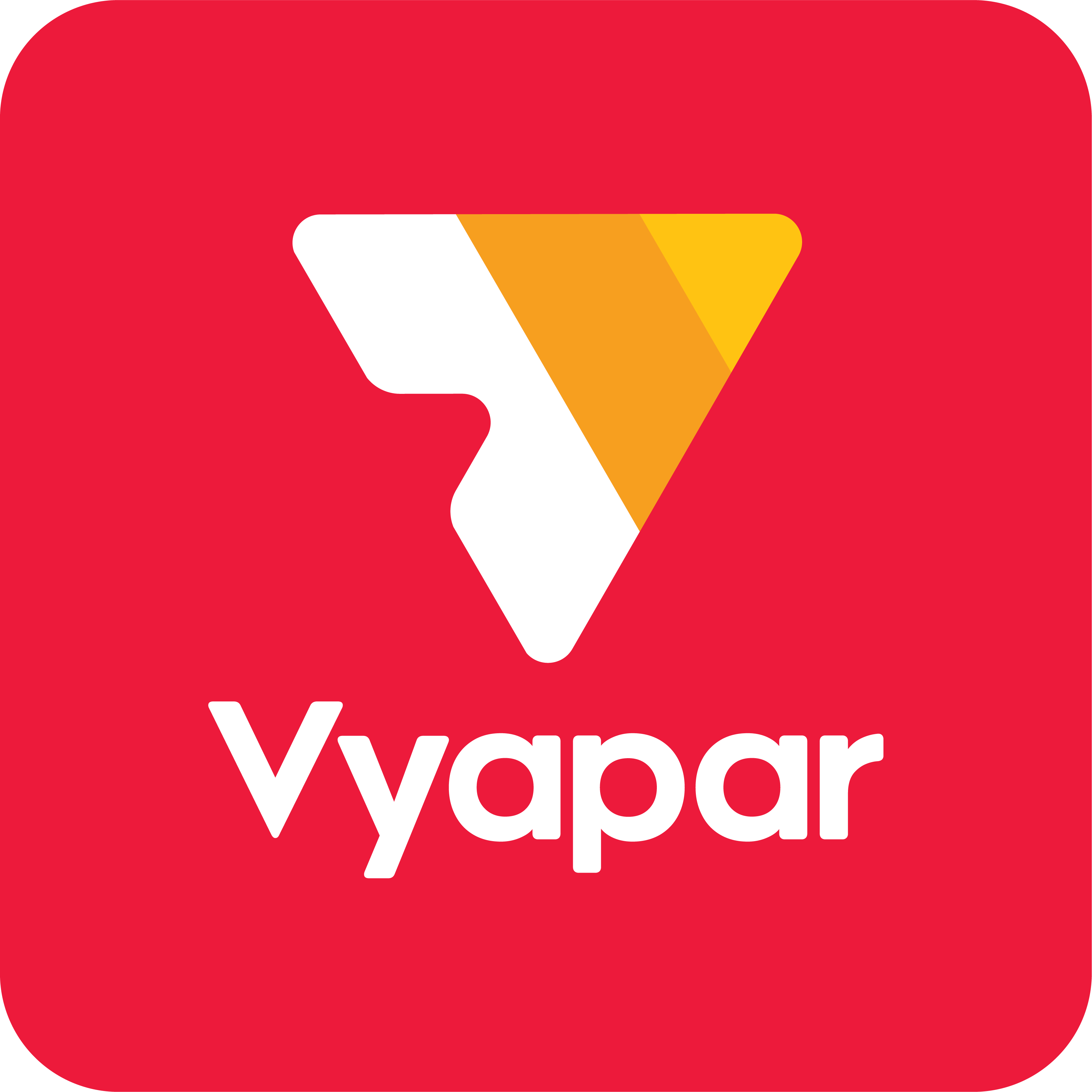








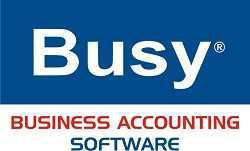

.png)
